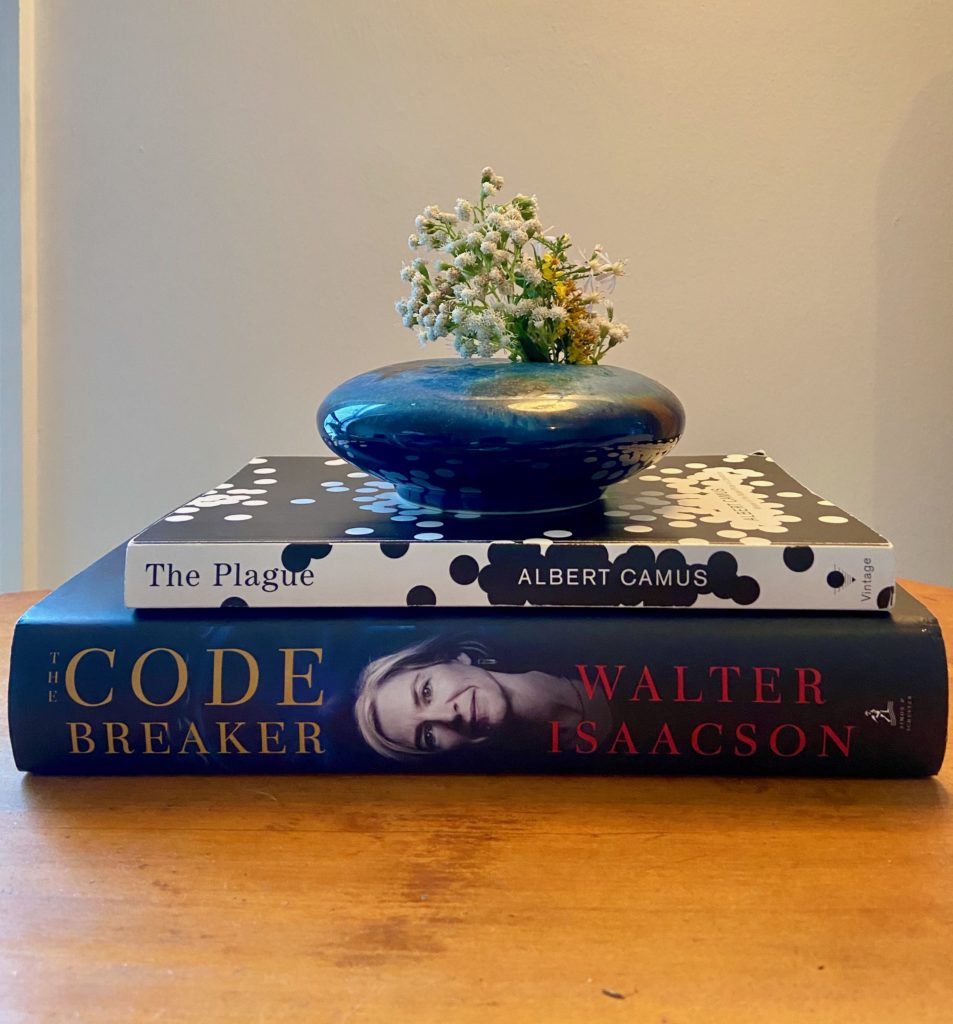A radiant breezy summer afternoon. The gently sloping lawn is covered with tiny white dandelions. The loud buzzing of the road bike bearings, white butterflies fluttering with the swaying of the leaves. And yet the pandemic was still present, its dark firm grip on life choking off all that was mundane and normal so that we were at once dead and living again.
The Plague, by Albert Camus, is about a fictional town Oron that endures the sudden outbreak of an unexplained virus and survives. The story written in the fifties was heartbreaking and familiar.
“Everybody knows that pestilences have a way of recurring in the world, yet somehow we find it hard to believe in ones that crash down on our heads from a blue sky. There have been as many plagues as was in history, yet always plagues and wars take people equally by surprise.”
The early slow trickle of sickness in the news, first in far away countries then a single one at home which multiplied overnight, authorities no longer authorities, confused without first-hand experience or a playbook other than learning from history books, Oron was shut down with a literal city gate in matter weeks. In Oron and in NYC, people with means moved out in panic, those with means stayed out of defiance, and those with neither dealt with the situation. In both cities, the virus broke out in spring bringing both crocuses and the relief of the last frost and the beginning of after times when most will remember when life as they knew it changed. The Plague is narrated by Dr. Rieux the small-town doctor who immediately realizes after stepping on rotting rats that multiplied over a few days that there was a virus to blame for the sudden and swift destruction of the city’s vermins.
Our modern-day Dr. Rieux is Dr. Jennifer Doudna, only she is not fictional- she is the 2020 Nobel prize winner in Chemistry. The Code Breaker by Walter Isaacson isn’t about the pandemic but the groundbreaking discovery of CRISPR, the base technology used by bacteria for millennia to fight off viruses. Dr. Doudna’s team cracked nature’s code to clear the controversial pathway to gene editing. The science uncovers the monumental scientific discovery and the team behind the discoveries that have helped us fight the virus in ways that the people of Oron couldn’t have.
Reading The Plague allows the reader who is experiencing the pandemic firsthand to find an odd comfort in the similar struggles of a fictional town. Then reading The Code Breaker provides a scientific explanation of the nature of viruses and inspiration from man’s (in this case a woman!) capability to decode nature and pave the way to medical discoveries. Because as the quote in The Plague states, pestilence and war will recur.

Leave a Reply